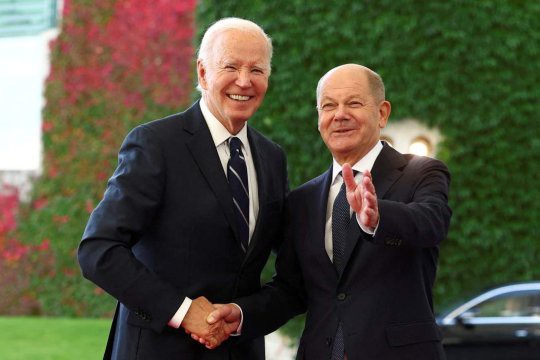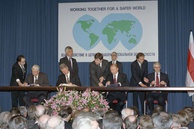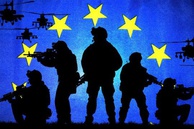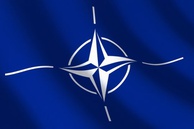According to Deanne Criswell, head of the Federal Emergency Management Agency (FEMA) under the US Department of Homeland Security, Hurricane Milton, a Category 4 hurricane on the Saffir-Simpson scale which hit the US on October 9 did not lead to the catastrophic consequences that the American climate monitoring services had predicted earlier. In an interview with NBC News, she noted that "we didn't have any of the extreme consequences we had been preparing for, but still, a lot of people were affected.”[1]
Indeed, Hurricane Milton, so powerful and destructive, became the second strongest ever recorded, surpassed only by Hurricane Rita, which raged in 2005. However, a new "scientific discovery" emerged – it turned out that the hurricane, which originated somewhere in the vast expanse of the Gulf of Mexico, was allegedly created by Russia. Yes, by Russia, as was stated by none other than Tim Walz, the governor of Minnesota and a Democratic vice presidential candidate. With complete confidence and, apparently, expertise, he claimed that "Hurricane Milton was artificially created by Russian scientists." According to Walz, "Russian scientists somehow managed to alter Earth's gravitational field and trigger a monstrous hurricane using advanced technology."
"It's becoming extremely dangerous that the Russians are now dominating not only in the cyberspace but are also controlling Earth's gravitational field!" But let's forgive the candidate this pre-election nonsense, the more so since he made this statement in the heat of the presidential campaign!
It also turned out that on account of Russia six million US citizens were forced to abandon their homes in Florida and Georgia and President Joe Biden himself had to postpone his state visit to Europe. As stated in a written statement by White House press secretary Karine Jean-Pierre, "US President Joe Biden decided to postpone his planned trip to Germany and Angola from October 10 to 15 due to Hurricane Milton approaching the United States." Biden's press secretary said that given the predicted trajectory and strength of the hurricane, President Biden postponed the visit and assumed control of taking response measures as the hurricane approached. In Europe, the president was supposed to meet with the leaders of three leading European countries – Germany, Britain, and France – as well as participate in a meeting of the contact group for supplying weapons to Kyiv at the level of defense ministers within the framework of the "Ramstein" summit.2
Following the president, US Secretary of State Antony Blinken also canceled his visit to Germany, telling Mail News that the US would respond to "the reckless and aggressive actions by Russia." Apparently, Blinken too meant the consequences of Hurricane Milton, as he remarked that today there is fierce competition between the US and Russia for shaping a new era in international affairs. Nevertheless, as the Secretary of State noted, it's not just about the hurricane, the problem is that "…mainly Russia, in partnership with Iran and North Korea, as well as China, are determined to change the fundamental principles of the international system." And at the same time, they want to "establish spheres of influence abroad." Further down the list: they "are trying to change the entire global architecture" and "are taking unprecedented measures to interfere in US internal affairs."
Ahead of Biden's forthcoming visit to Germany, it was planned that in the course of the visit and during the "Ramstein" summit, the United States would present its partners with an overview of Russia's actions, which, according to Washington, are hostile. In an interview with Foreign Affairs, the Secretary of State even stated that "Russia is obstructing us in everything." Well, if he meant that Russia and China, and now many countries of the Global South, refuse to obey the "American-style" world order, then he is right.
And yet, Joe Biden's trip to Europe did take place, although, as they say, at a gallop – at a gallop – across Europe! On October 17, the US president arrived in Germany but the status of his visit was downgraded from state to working, the planned five-day stay was cut short to a few hours, and even the official state dinner was canceled! But, what does it change, actually? If we talk about the results of Joe Biden's visit to Germany, it was undoubtedly his last one in the capacity of US president, and perhaps for this reason, Biden heard many words of gratitude on his account. Moreover, German President Frank-Walter Steinmeier received Joe Biden at his residence in Bellevue Palace and presented him with the "Cross of Merit of the Federal Republic of Germany." But for what? Perhaps for destroying the "Nord Streams" or deindustrializing Germany?
As the German president stated in his ceremonial speech, Biden has merits. According to Steinmeier, "only a few years ago, the gap between our countries became so great that we almost lost sight of each other. When you were elected president, you literally brought hope back to Europe overnight. Therefore, the German authorities are grateful to you for your efforts to restore the alliance."
It can be assumed and imagined that the shadow of Donald Trump, threatening the EU and NATO countries with his finger, loomed invisibly behind these words of gratitude. For what? He had and still has many claims to this so-called "community", both in the past and the present – from economic ones to the underfunding of military spending.
What else? As Joe Biden noted to reporters before the start of negotiations with Chancellor Olaf Scholz, "the US and Germany are the two biggest supporters of Ukraine in its fight for survival." According to Biden, Ukraine is facing a "very difficult winter" this year, so Washington and Berlin must continue providing assistance to Kyiv, even though the price of such support is very high. The outgoing US president was frank: "today, the Chancellor and I are going to discuss expanding support for the Ukrainian military, protecting energy infrastructure, and how to help rebuild Ukraine at the expense of frozen Russian assets." They struggled for a long time over whether or not they could steal Russian assets. And finally, they took the decision.
After discussing all these issues in a bilateral format, Joe Biden and Olaf Scholz met on the evening of October 18 with French President Emmanuel Macron and British Prime Minister Keir Starmer. As it became known, in addition to Zelensky's "victory plan," the four-way meeting touched on the topic of an ultimatum issued by Zelensky to the West: "either Ukraine joins NATO, or it will have to create nuclear weapons for its defense." Publicly, the participants in the negotiations did not comment on this issue, ignoring questions from journalists at Joe Biden and Olaf Scholz's press conference. However, Scholz again made it clear that "NATO is not and should not be a party to the conflict in Ukraine, otherwise this war will lead to an even greater catastrophe." But what can words mean from people whose opinions and statements have changed repeatedly to suit the political situation?
According to German political scientist Christoph Herster, US President Biden's visit to Germany, which took place despite natural disasters, is the beginning of Washington's preparation for a new aggressive strategy against Russia. As the expert noted, according to documents, the US leadership's policy involves a five-year lull in hostilities in Ukraine. This will be done in order to prepare for a new, more serious, and larger-scale conflict with Russia. However, this option is only considered in case of victory in the elections of the Republican candidate, Donald Trump. In conclusion, Herster noted that "the old man Biden's flight to Europe obviously means something more important than was announced in the press, most likely it is a plan to prepare troops for a war in Europe."
What kind of plan is this? Most likely, Joe Biden's visit to Germany indicates that he is not only aware of the strategic plan for revising relations with Moscow now being discussed in the West, but is also its main participant. As the new NATO Secretary General Mark Rutte stated regarding how to conduct relations with Russia, "a phased approach is needed." The Secretary General of the alliance stressed that this is about discussing long-term prospects for relations, because in the short term, the situation boils down to the task of preventing Russia from gaining the upper hand in Ukraine. He added that NATO's previous relations with Russia will not be restored "in the near or distant future."
According to Politico, citing a high-ranking American official, in Brussels, alliance countries tried to "outline various elements of the strategy," and discussed the future of the "Russia-NATO Founding Act." Let me remind you that this document signed in May 1997 in Paris stipulates that the parties do not consider each other opponents, and the Act declares the foundations of relations between Russia and NATO and defines the mechanism of mutual consultations and cooperation.
As the publication writes, alliance defense ministers agreed that "it is time for NATO to develop a new strategy in terms of specific positions regarding Moscow, since the Russia-NATO Founding Act was created for a different era, so something new is needed now."
In addition, the edition reports that while discussions about changing the strategy towards Russia at a lower level have been ongoing for several months, the discussion at the ministerial level took place for the first time. Now in Brussels, the allies have agreed to prepare a draft of a new strategy and approve it at the NATO summit in the Hague in June 2025. The edition also clarified that there is no draft of the new document yet, as there are disagreements among the bloc's members about "how far NATO should go in formulating a new set of rules regarding Moscow."
In turn, Russian authorities have repeatedly stated that our relations with NATO are based on the very "Russia-NATO Founding Act", therefore, revising it without taking into account Russia's position would mean that alliance countries are undermining its foundations, with all the ensuing consequences, while pumping Ukraine with Western weapons will not weaken Moscow's resolve and will not change the course of the Special Military Operation. As for revising the North Atlantic bloc's strategy towards Russia, as Russian President Vladimir Putin rightly noted at a meeting with the heads of news agencies of BRICS member countries in Novo-Ogaryovo on October 20, whatever plans they are guided by, "if someone talks about the need to inflict a strategic defeat on Russia, to ensure victory over Russia on the battlefield, they themselves have already seen for themselves that it is impossible and unrealistic”. So, let’s hope for common sense, but let’s also prepare for the fact that it may not be there.[2]
[1] The US acknowledges that Hurricane Milton did not lead to the destructive consequences 11.10.2024. Electronic resource: https://tass.ru/proisshestviya/22099705
[2] Biden is set to visit Germany after postponing his visit on 17.10.2024. Electronic resource: https://tass.ru/mezhdunarodnaya-panorama/22140805
read more in our Telegram-channel https://t.me/The_International_Affairs

 10:42 24.10.2024 •
10:42 24.10.2024 •



























